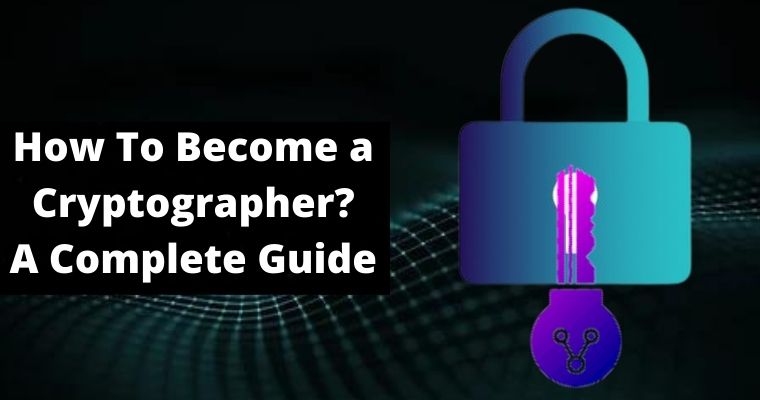Penetration testers help companies and organizations identify and repair security bugs in their digital assets and computer networks
some testers work in-house for permanent employers and internal cybersecurity or information technology (I.T.) teams. Others work as a freelancer for specialist companies that provide penetration-testing services to their clients.
With the high-profile security breaches dominating the cybersecurity landscape, now is an excellent time to become a penetration tester.
As cyberattacks become more sophisticated and nuanced, online companies’ chances of falling prey to cybercriminals are increasingly rising-which is why organizations need penetration testing.
Penetration testers are engaged in more significant numbers across industries that deal with large volumes of confidential, medical, classified, or proprietary data.
Some firms put a higher value on a candidate’s expertise and experience than on their academic credentials.
Organizations are seeking candidates with a bachelor’s or master’s degree in computer science, information technology, cybersecurity, or a related field of experts.
Table of Contents
Penetration Tester: Who is one?
The investigators of the information security world are penetration testers/ethical hackers. The aim, as with many P.I. operations, is to discover threats before any possible invasive operators can put their plans into action.
One of the elementary truths of human existence in general, and digital information systems in particular, is that unscrupulous actors will always try to exploit vulnerabilities.
Pen testers look for possible bugs in wired and wireless network systems, as well as web-based software, to analyze, discover, and help fix them.
A perpetual arms race exists between ethical hackers’ proactive actions and the efforts of real-life hackers. Each side makes a concerted effort to advance its expertise, skills, and strategies beyond the other’s capabilities.
Penetration testers use an aggressive defensive technique. The motive is to provide the best possible information security by targeting computer systems offensively in the same way that a real-life hacker would, thereby beating the hacker to the punch and assisting in the closure of the vulnerability.
As a consequence, information security will be compromised, and networks will be targeted- so that the real-life hackers can be beaten in their own game.
How to become a Penetration Testers?
The position of a penetration tester screams a great deal of responsibility. You will be expected to be well-versed in cybersecurity tactics, threat styles, and vectors.
Since the cybersecurity world is one of the most complex and ever-changing in the Information Technology world, one needs to be ready to keep your skills up to date on a regular basis.
This means you’ll need a strong interest in cybersecurity and a willingness to learn new things on a regular basis.
You must have a thorough understanding of I.T. applications and networks. Understanding communication protocols is also crucial since this can be a system’s weak point.
This implies that knowing how to write software code is advantageous. It is not required, and you do not need to be an expert, but having hands-on knowledge of THE HOT programming language such as Python would be beneficial.
Kickstarting your career: as a Penetration Tester!
Whether you’re a beginner or a seasoned I.T. pro interested in learning more about pen testing, you should start by reading up on the topic.
Using blogs, textbooks, and guides, as well as videos, to learn more about not only pen testing but also general cybersecurity issues.
The bottom line is, that you should be aware of the following:
- Techniques, tricks, pathways, threat profiles, and the anatomy of cyberattacks are all covered in this section on cybersecurity.
- For cybersecurity intelligence, the OWASP website can turn out to be a good teacher.
- Networks and hardware
- Databases, operating systems
- Web apps and APIs-some hands-on knowledge on these applications.
- At least in terms of analyzing security problems and proposing solutions, data analysis is essential.
Pen Testing: Hands-on Experience!
As with most I.T. jobs, there is no one-size-fits-all skillset for a pen tester. Some penetration testers are self-taught and lack academic qualifications and certifications.
By cultivating the right skills and hustling a little, you could become one with the right combination of talent and opportunity.
Penetration testing is a practical subject in the field of I.T. All the books and YouTube videos on ethical hacking in the world cannot prepare you for the real thing.
You’ll need to practice. If you’ve read this far, there’s a good chance you’ll be one of the people who can quickly put your own mini-test system together.
Pen testing toolkits like Security Onion or Kali Linux will help you get started on your own pen-testing for practice. They have a condensed collection of pen testing methods that can be used to get a feel for the practical side of pen-testing.
One must learn about the Penetration Testing Execution Standard (PTES), which is a pen testing system.
It will assist you in achieving operational standards and serve as a practical general guide in the field. Many job roles and internships will enable you to be well-versed in both this standard and OWASP.
Gaining Further Experience: Diving Deeper
You’ve had a few years of technical experience now. At work, you may have already begun to take on security responsibilities. You now have a Kali case, 600 new tools, and a nagging trigger finger.
The following is a disclaimer: attempting to obtain unauthorized access to a device is against the law.
With that out of the way, hands-on experience is critical when learning any new skill, but it’s especially important when learning penetration testing. As previously mentioned, penetration testers:
- Find out what the weaknesses are
- Determining attacks may take advantage of those flaws
- Understand how to use the tools to carry out the attack
- A summary of how to fix the flaw
- There’s no better way to understand these than by doing them.
Pen testing Bootcamps to sharpen yourself: There’s no better way to learn and practice penetration testing than under the supervision of an instructor.
The penetration research curriculum is built around lab environments in cybersecurity boot camps like QuickStart.
Penetration monitoring is challenging. In as little as five days, qualified teachers will teach you the fundamentals of penetration testing.
Accustoming yourself to the Lab Environment: There is a slew of great penetration testing lab items on the market.
Training companies create lab environments to build tasks that replicate common vulnerabilities found in the wild.
Hack the Box, which CONSISTS OF free and paid tiers of A PLETHORA OF pen-testing challenges, is the most common lab environment for aspiring pen testers.
The Hack the Box challenges range from easy to difficult, and new challenges are introduced on a regular basis. Hack a Box is a group of scores, badges, and prizes in addition to the challenges.
Although H.T.B. isn’t the only lab environment available, it’s open, community-oriented, and often the first stop for new pen testers — a good place to start.
Gripping on the Flag Competitors: Cybersecurity Competitions such as Capture the Flag (CTF) are simply gamified lab settings. CTF competitors are given a “flag,” which may be a piece of data or a certificate in a lab setting, much like in the kid’s game.
You must complete a set of increasingly difficult tasks that fall into five categories in order to “capture” the “flag.”
- The exploitation of binary data
- Reverse engineering is the process of reconstructing the existing object with deductive reasoning
- The exploitation of the internet
- Cryptography is a technique for encrypting.
- forensic science
- A variety of free capture the flag competitions are available. Smash the Stack, and Google CTF are two of the most common online CTF competitions.
Start exploring your own network: Finally, start playing around with enumeration tools like Nmap and Burp Suite.
It’s not a bad idea to run port and vulnerability scans on your own network, whether at home or at work. It’s possible that you’ll be shocked by what you find.
That being said, don’t start aiming Kali’s manipulation resources at something you don’t own — or don’t want to destroy. Kali Linux is a versatile collection of tools that can lead to trouble.
There are lab settings, boot camps, and this site: Hack This Site, which is exactly what it sounds like- if you really want to hack something.
Penetration Tester-Job Roles & Responsibilities:
Penetration testers, otherwise known as ethical hackers, are people who search for and record security flaws.
This is normally achieved under the parameters set out in a client-pen tester agreement. Such boundaries may be set by a deadline, such as exposing weaknesses in their network in a matter of days.
Before we go any further, the last point should be emphasized: specifying the scope of work is a must if you’re going into pen research.
Pen testers were recently arrested in Iowa for burglary and possession of burglary equipment. The state government hired the testers, and they were caught breaking into a courthouse.
If you’re just starting out as a pentester, make it a habit to spell out the scope of work in written agreements. Let’s get back to the duties of a pen tester now that that’s out of the way. The contracting company receives a report after the testing process is completed.
In general, the report will list vulnerabilities, attempt to measure their seriousness and recommend remediation measures.
For example, a phishing email could have revealed a lack of user awareness and knowledge. In that case, end-user training and applications such as KnowBe4 might be recommended.
The following are examples of activities that come under the umbrella of pen testing responsibilities:
- Port scanning and network vulnerability
- Attacks based on social engineering
- Penetration checks for physical security
- Creating a report
- Making suggestions for remediation
It might be difficult to comprehend that a company would want others to try to compromise their network at first.
It would make sense, though, if you consider it from the viewpoint of a long-term, responsible company. Who would you like to have found a security flaw: a pentester you hired or a malicious attacker?
Top Certifications in Penetration Testing
Penetration testers attempt to break into clients’ digital networks in order to identify vulnerabilities before a black hat hacker can.
As businesses aim to avoid the high-profile data breaches that have occurred in recent years, this is a growing area. The best penetration testing certifications will assist you in breaking into this industry.
C.E.H. – Certified Ethical Hacker Certification
(Entry Level, 125-question multiple-choice exam, optional 6-hour practical exam)
The Certified Ethical Hacker certification is regarded as a gold standard for ethical hackers all over the world.
To pass this qualification, you’ll need to be up to date on the latest hacking and malware techniques in order to help your potential clients avoid security breaches.
Alpine Security’s course will not only train you for the EC-Council Certified Ethical Hacker Test, but we will also guarantee that you will pass it. The 125-question 4-hour test determines your awareness of the subject at hand.
After you’ve earned your diploma, take the 6-hour practical test to demonstrate that you’ve done your homework.
GPEN
(Entry Level Exam with 82-115 Multiple Choice Questions, 3-Hour Exam)
The GPEN certification from GIAC (Global Information Assurance Certification) is a three-hour proctored test with multiple-choice questions.
This test can seem simple in comparison to other companies’ day-long practical assessments, but the questions cover a wide range of topics.
The proctored exam includes not only technical questions about ethical hacking and penetration testing but also legal topics and other non-technical questions.
C.P.T. – Certified Penetration Tester
Entry Level, 50-question, 2-hour multiple-choice exam, practical exam (30 Days to Complete)
The IACRB – the Information Assurance Certification Review Board – issued the C.P.T. certification.
This is a versatile test that can be proctored anywhere in the world, or a proctor can come to you if you have a group of ten people interested in taking the text.
It assesses your understanding of penetration testing in general, as well as particular vulnerabilities in Windows, Unix, and Linux, wireless protection, and web application exploits, among other items.
The exam is multiple-choice, and you can pass if you get a score of 70% or higher.
Since technology changes so rapidly, this credential is only valid for four years, so if you get it, make sure you keep up with it. Fortunately, you can get re-certified for absolutely no extra cost!
PenTest+
(Intermediate, 2.75-hour test with up to 85 multiple-choice and practical questions)
CompTIA, a “vendor-neutral” I.T. certification body, offers PenTest+ as one of its certifications.
The tests are administered at Pearson V.U.E. testing centers, which are computer-based testing centers with strict controls.
With both test questions and a natural part, this exam is usually considered an intermediate exam that measures the ability to assess weaknesses in a system and recommend ways to mitigate deficiencies.
Alpine Security’s PenTest+ penetration testing training course, which comes with an exam pass guarantee, will help you prepare for this exam.
Intermediate ECSA – E.C. Council
(Certified Security Analyst, 4-hour multiple-choice exam, and 12-hour practical exam)
It is a moderate test from the E.C. Security Council, one of the top certification organizations in the penetration testing industry.
They’ve established several certifications to ensure market stability and competence. This qualification requires two tests.
A four-hour multiple-choice test with 150 questions is the first step- and the other exam is a 12-hour test that verifies your penetration testing skills in the real world. You will be granted an actual organization’s network to deal with as part of the test.
You must demonstrate your hands-on knowledge of network scans, vulnerability analysis, and other essential aspects of a penetration test over 12 hours.
Alpine Security’s ECSA ethical hacking training course will prepare you for both exams, and the exam fee is included in the class fee.
CEPT – Advanced Certified Expert
Penetration Tester Exam, 2 Hours, 50 Multiple Choice Questions, Practical Exam (30 Days to Complete)
The IACRB offers an advanced exam called Certified Expert Penetration Tester. This exam demonstrates the ability to hack shellcode and exploit code, as well as perform reverse engineering and other advanced penetration testing techniques.
It’s close to the C.P.T. exam in that it’s a multiple-choice test with a four-year validity period. This one consists of 50 questions spread out over two hours.
LPT – Advanced Licensed Penetration Tester Exam, 18 Hours
The E.C. Security Council’s most advanced credential is the LPT. Many who hold this certification are generally regarded as experts in their profession.
The LPT practical exam lasts an incredible 18 hours. Alpine Security’s A.P.T. (Advanced Penetration Testing) course will train you to pass the rigorous exam, which is regarded as the most challenging of its type by some industry experts.
OSCP
(Advanced, 24-Hour Practical Exam – Offensive Security Certified Professional)
Offensive Security is a Penetration Certificates-focused IT certification business. The exam consists of a real-life scenario that you must investigate for 24 hours.
The test assesses your ability to collect network information and then write a concise report with observations and screenshots to support your findings.
The complexity of the weaknesses you discover, as well as their level of access, are factors in the test’s scoring. It’s a difficult realistic exam, but if you want to be a good penetration tester, getting this credential is well worth losing a night’s sleepover.
OSCE
(Advanced, 48-Hour Practical Exam – Offensive Security Certified Expert)
The OSCE is a difficult test. It is an advanced certificate provided by Offensive Security that takes place over 48 hours.
This test will put you to the test and demonstrate that you are able to function in the real world.
The exam is difficult, but it will demonstrate your ability to evade anti-virus software, use innovative problem-solving skills, and recognize weaknesses that would be difficult for a less skilled ethical hacker to find by realistic methods.
Stock up on coffee and prepare for one of the industry’s toughest exams.
All of these credentials will assist you in beginning your career as an ethical hacker/ penetration tester.
If you’re new to the penetration testing profession, start with some of the simpler ones and work your way up to the ones that make you lose sleep for a day or two before you can prove you’re an expert.
Keep in mind that, while any credential is an excellent addition to your resume, employers prefer realistic certifications that demonstrate you know what you’re doing and can perform under pressure.
To ensure your success, enroll in one of Alpine Security’s certification training courses.
The Key Takeaways
A penetration tester’s career path is usually similar to that of other I.T. and engineering employees.
You could begin your general IT career and then specialize in pen testing by earning one of those, as mentioned earlier ethical hacking certifications and working your way up to become a junior ethical hacker or penetration tester.
You will advance ahead to a more senior role involving challenging assignments or handling people with less experience after you’ve proven yourself at that job.
Getting any of the certifications mentioned above will help you advance in your penetration testing career, whether you’re a penetration tester, vulnerability tester, security analyst, or one of the many other titles available in this exciting and vital area.



